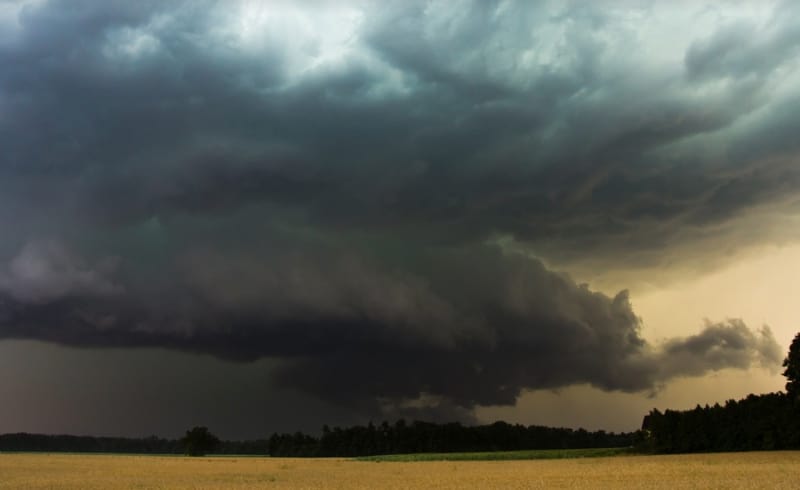Severe thunderstorms dominate $108bn 2023 insured catastrophe losses: Swiss Re

According to global reinsurance giant Swiss Re’s sigma research team, insured losses from severe thunderstorms reached a record high of US $60 billion in 2023, while overall natural catastrophe insured losses are estimated to have surpassed $100 billion again in 2023.
Overall insured catastrophe losses are estimated at $108 billion for 2023, with the $100 billion from nat cat and $8 billion from man-made loss events, by Swiss Re’s reckoning.
That’s a roughly 23% decline from the $141 billion of overall insured catastrophe losses in 2022, which saw nat cat losses reach $133 billion.
But, with the ten-year average for overall insured catastrophe losses just $99 billion and for nat cat insured losses alone just $89 billion, 2023 is set to be another above-average year of catastrophe losses for the global insurance and reinsurance industry.
Swiss Re’s sigma team noted that a high-frequency of low single-digit billion-dollar loss events helped to take insured losses above the US $100 billion threshold for the fourth consecutive year.
Jérôme Jean Haegeli, Swiss Re’s Group Chief Economist, said, “The cumulative effect of frequent, low-loss events, along with increasing property values and repair costs, has a big impact on an insurer’s profitability over a longer period. The high frequency of severe thunderstorms in 2023 has been an earnings’ test for the primary insurance industry.”
Severe thunderstorm losses in particular have been on the rise.
They have steadily increased by 7% annually in the last 30 years, according to Swiss Re’s data.
Notably though, at $60 billion the insured severe thunderstorm losses in 2023 are almost 90% higher than the previous 5-year average (US $32 billion), and more than double the previous 10-year average (US $27 billion).
2023 is also the first time that severe convective storm losses have exceeded $50 billion in the United States.
Balz Grollimund, Head Catastrophe Perils at Swiss Re, commented, “For the insurance industry, recent events provide robust benchmarks for estimating the increasing loss trends. Nevertheless, to further progress the deeper understanding of this peril, it is important to get better insights from primary insurers on distributions of insured exposure and detailed claims data. It is equally important that insurance premiums adequately reflect the risk for the coverage provided especially also in light of increasing loss trends.”






